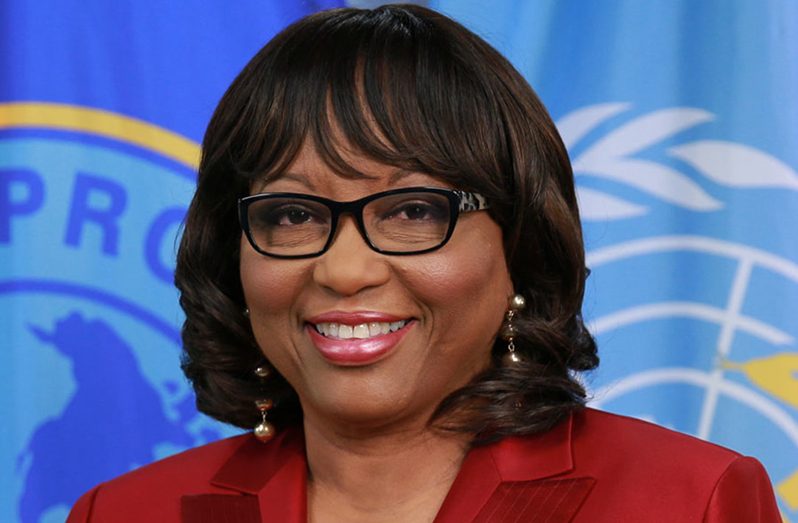ON the eve of Vaccination Week in the Americas, PAHO is urging countries to close the immunisation gap that resulted in hundreds of thousands of children missing vaccinations last year. The decline in immunisation was partly due to interruptions in health services because of the COVID-19 pandemic.
The call for stepped up immunisation coincides with the April 24-30 Vaccination Week in the Americas and World Immunisation Week regional and global events when countries launch immunisation campaigns. The 2021 theme, “Vaccines bring us closer”, is the need to focus on closing the immunisation breach.
“The Americas has been tremendously successful in immunisation against many serious diseases,” said PAHO Director Carissa F. Etienne. “We were the first region in the world to eliminate smallpox, polio, and rubella, but we are now seeing declines in immunisation, and we must reverse that trend, not only for the health of our children, but also for the well-being of our entire society.”
In 2020, in the WHO Region of the Americas, 18.2 per cent fewer children (474,395 in total) received all three shots of the DPT3 vaccines against diphtheria, tetanus, and pertussis, compared to 2019. Also in 2020, 13.9 per cent fewer children (379, 208 in total) received their dose of the MMR1 vaccine against measles, mumps, and rubella, compared to the year before.
COVID-19 restrictions on movement contributed to fewer vaccinations. In addition, many people were reluctant to go to health facilities to request vaccinations for fear of COVID-19 transmission. “The Americas has been at the forefront of reducing deadly and life-altering disease through vaccination,” said Dr. Cuauhtemoc Ruiz Matus, Chief of PAHO’s Immunisation Unit.
“In recent years, we have seen a dangerous decline. This year’s Vaccination Week in the Americas is a chance not only to celebrate the availability of immunization, but also to get vaccination back on track.”
Reduced immunisation in 2020 follows a longer-term trend. According to a recent PAHO report, “In 2019, endemic transmission of measles was reestablished in Venezuela and Brazil; between 2013 and 2019, the number of countries and territories reporting that 95 per cent of children under one year of age had received all three DTP vaccine doses declined from 19 to 13. During the same time period, the number of countries that were able to sustain at least 95 per cent coverage with all three DTP doses for three or more years declined from 13 to six.”
Urging countries to increase immunisation, Dr. Etienne called for government policies to strengthen public confidence in vaccination. She urged promotion of immunisation during the COVID-19 pandemic, and support for introduction of COVID-19 vaccines.
She also called for maintaining public health measures, such as physical distancing, mask wearing and proper hand hygiene, throughout the COVID-19 vaccination process and until the pandemic is defeated.
Amid the decline in immunisation last year, there was good news. During the 2020 vaccination week, 16 countries immunised populations against influenza, prioritising healthcare workers, older adults and people with chronic illness. More than 100 million people were vaccinated, reducing the potential that health systems already taxed by COVID-19 could be overwhelmed by flu patients. In 2020, 10 countries vaccinated more than 250,000 children and adults against measles. Nine countries vaccinated against polio, and eight countries immunised against HPV (human papilloma virus) during that week.
For over 40 years, PAHO’s Expanded Programme on Immunisation (EPI) has helped make the Americas a global leader in elimination and control of vaccine-preventable diseases, such as rubella, congenital rubella syndrome, measles, and neonatal tetanus. Since the creation of the EPI in 1977, countries have moved from using six vaccines in their national vaccination schemes to an average of more than 16 vaccines, which represents greater protection for the population.




.jpg)









